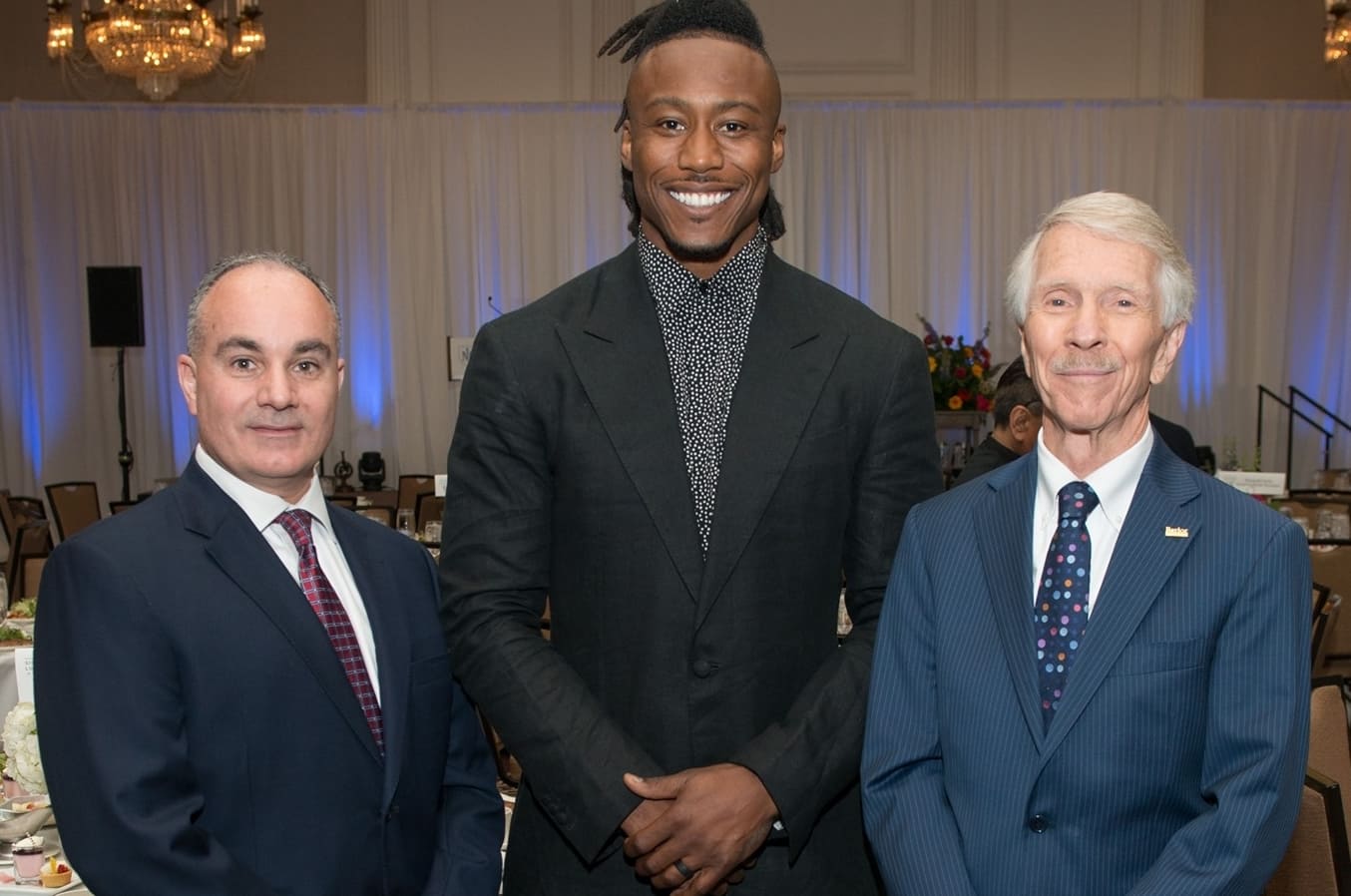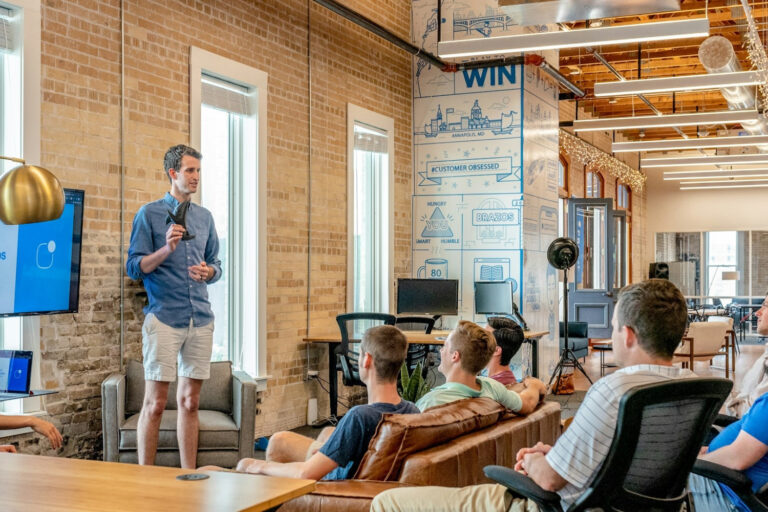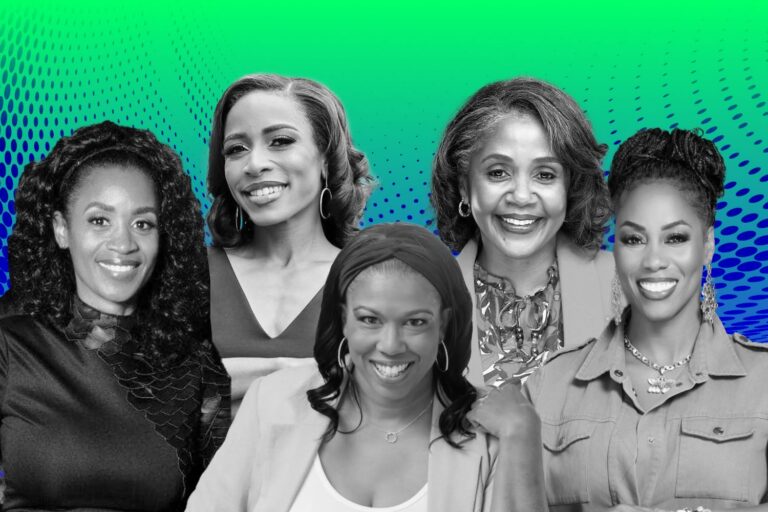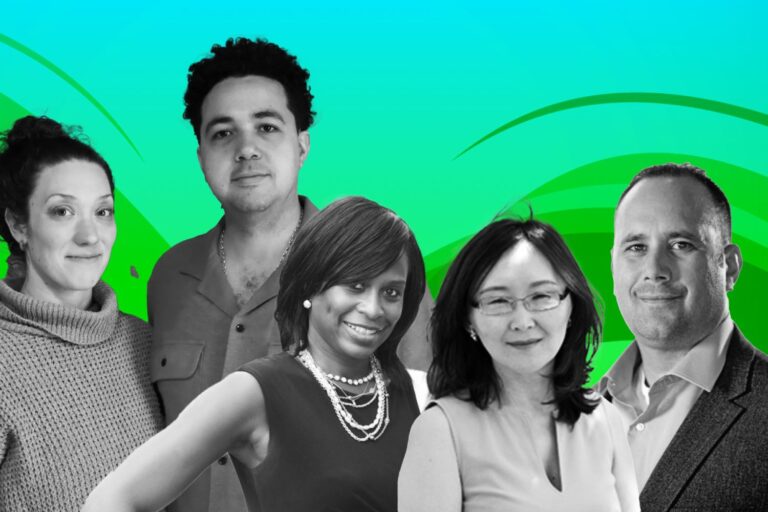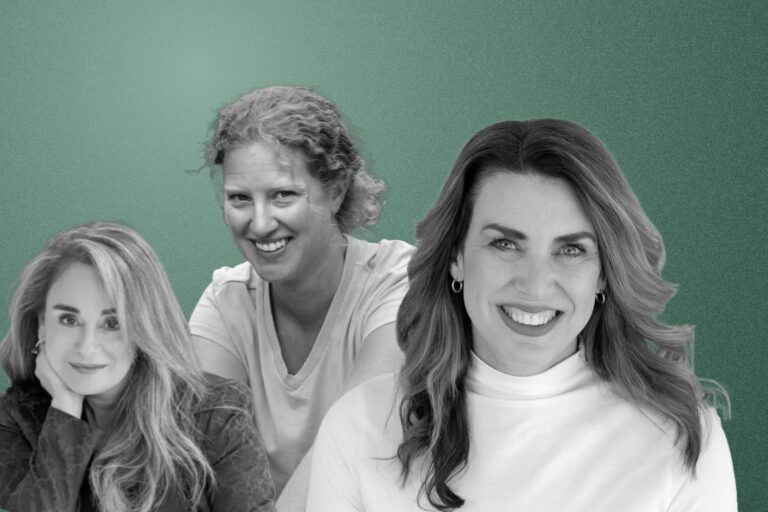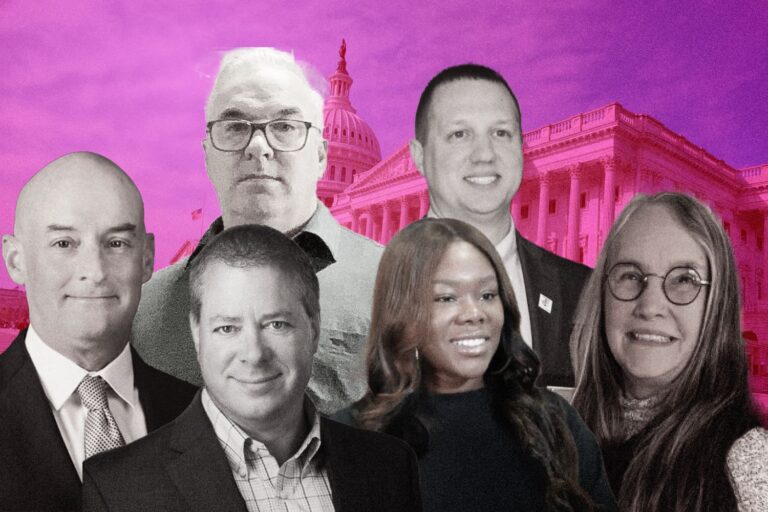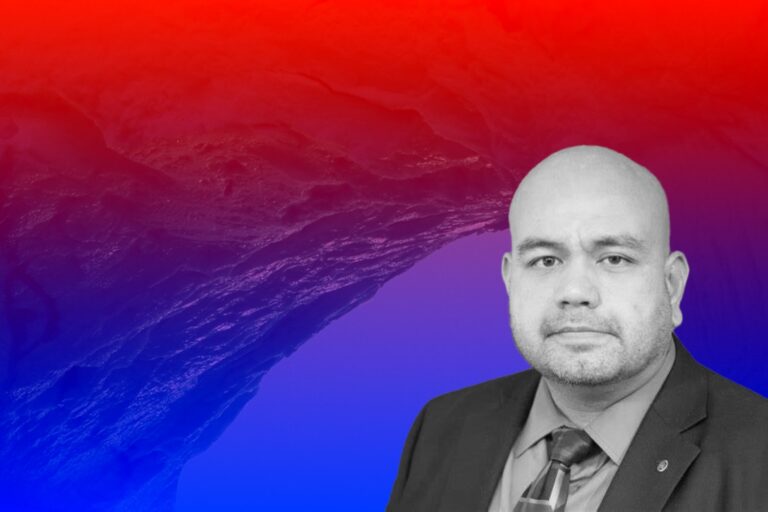Brandon Marshall & His Endeavour to Transform Life Setbacks into a Lifestyle Business
Brandon Marshall was a wide receiver for the Miami Dolphins, Chicago Bears, New York Jets, New York Giants and the Seattle Seahawks, as well as a Super Bowl/NFL Draft and is currently an entrepreneur, a mental health activist and a hit host at the Showtime’s NYC studio.
Be a Show Host to Secure My Voice
By the end of his career as a football player, Marshall was diagnosed with Borderline Personality Disorder (BPD), which adds to the adversity he must contend with and also one of the factors that motivates him. “This is why I’m here. Football is my platform, but not my purpose. This is my purpose. So, how do I use my story to help other people?” says Marshall, and as he found the Project 375, the entrepreneur also become a hit at the Showtime.
However, to be in front of the camera was never his intention. But because the game was taken away from him, how can he continue to have a voice to talk about mental health and his mission? That’s why getting into production and television becomes a strategic move.
“I AM Athlete, FS1, Showtime – it’s all to push people to take care of themselves mentally, physically, emotionally. It’s been a bit of a journey, but you have got to have a platform where the public can seek out your voice,” the entrepreneur insists on a recent interview with Insidehook.

More on being a first-time show host.
Now that he’s retired, Marshall has no problem whatsoever speaking his mind. “I’m freer. I’m very vocal. I’m unapologetic. I’m bold and I will say what’s on my mind. I wasn’t able to do that. That was something I had to navigate through,” quickly Marshall able to establish on-camera chemistry with co-hosts just like he did with new team player back in his playing days.
“It’s just coming in and understanding your place and your role and the seat that you occupy,” he says. Either a host or an entrepreneur, if you want to be heard to be grasp the attention, first and foremost, you have to have an identity. Know who you are as a leader, as a host as a talent in front of the camera. Then you transform your passion into chemistry. You want to be able to disagree, but you also want the viewers to know what you guys care about each other. “That’s the makings of a great show and a great crew.”
According to Marshall, some of the lessons he learned on the football field translate to performing on the set.
“It’s the locker room. It’s the same conversation. Even today, it’s the same thing where I go in and the energy needs to be right,” he says. “We’re not competing for the Lombardi Trophy. We’re competing for a Sports Emmy, and the things that we learned from playing ball help us become really good on television. It is work ethic, energy, camaraderie, and chemistry. You use all the things from playing football and being a part of that locker room to be awesome on the set.”
Transform Life Setback into Life Purpose
“The past few years, it’s been up and down for me. And to be received as much as I have in the community, it’s important to build my structure in the community…I want to be all over the place giving back!”
It seems like the formula for a great transformation is the need to give back much love that you have been getting. Told on the CBS sports, after being diagnosed with mental disorder Marshall goals was to reduce the stigma and help other who are suffering from the same illness. Together with wife Michi Marshall, they believe that eradicating the stigma makes treatment possible – especially with individual playing arguably one of the toughest and most physical sport on the planet. And Project 375 – a non-profit organization comes into being.
But how did he go from a BPD diagnosis to found a mental health nonprofit?
It starts with your mentality. “It was easy for me. I think we all have a purpose and half of our lives are spent searching for that purpose,” the time at McLean hospital reveals to him. The founder realizes that he was there to help bridge the gap in the mental health community, with football as his platform – his launcher to facilitate the purpose of serving people, help kids and those who suffer. That is also when he learns the genesis of building business, it comes from the need to help and serve other people.
After that, Marshall filled his schedule with meeting at companies and organizations like Singularity University, AI mental health startup X2AI, or mental health platform Lantern. Not an expert in tech but he knows that tech solutions are needed to solve most of the issues in his organization and community, Marshall claims “I know people well, that is my space.”
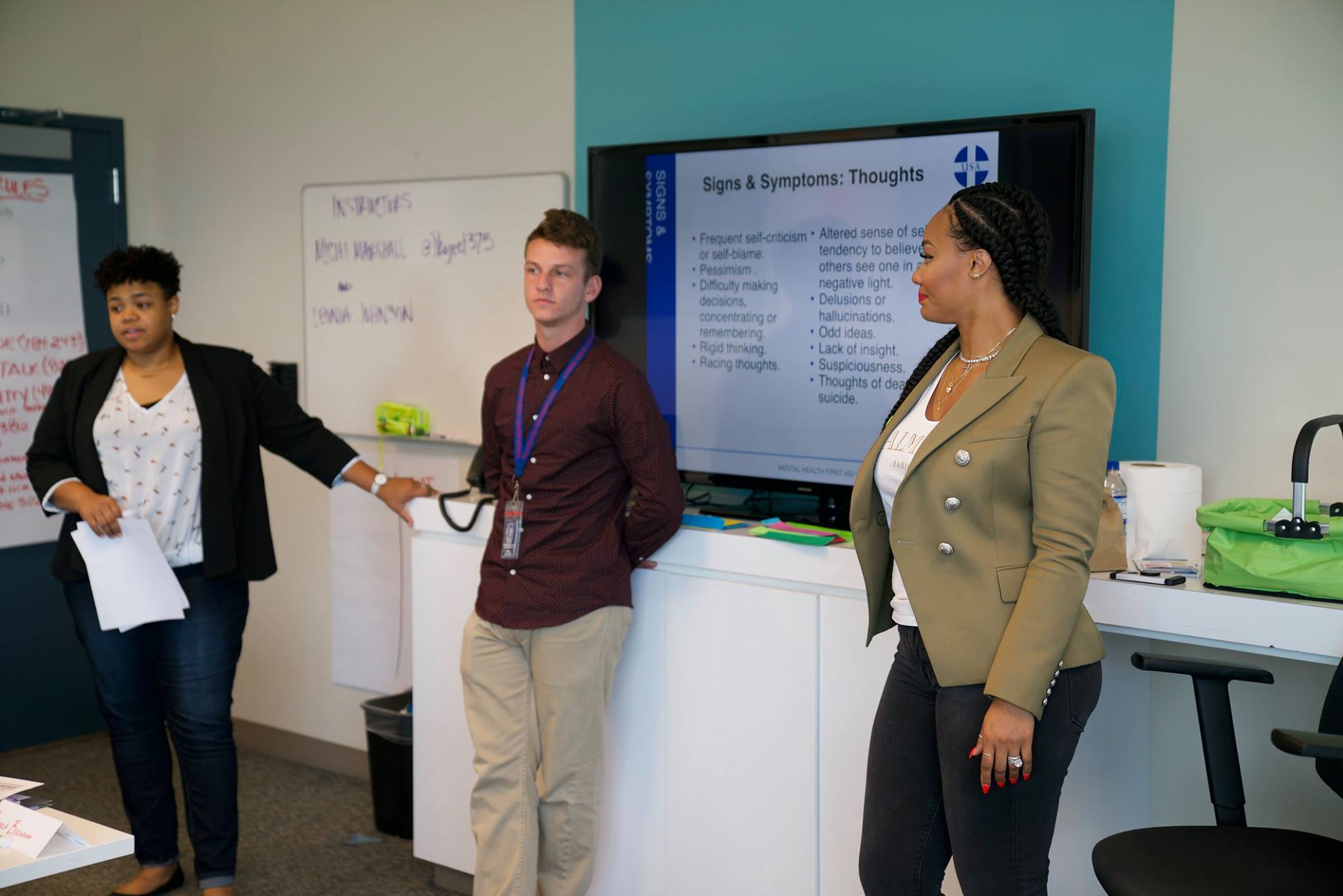
Artificial intelligence, he said, is what helps bring mental health to the masses, and that’s going to happen through partnerships between non-profit organizations like Project 375 and tech startups focusing on mental health.
As he retired, the player wants to change how professional sports approach mental health. “I want to start with NFL. Some of the technology, I believe, should be part of employees’ benefits.”
Football seems to be the root of his journey. It also helps Marshall with a business venture, a lifestyle wellness brand called House of Athlete, (HOA). While Project 375 is about mental fitness, this is about physical training and fitness.
“You know what has been amazing utilizing in this transition from football to business? It’s adversity,” he says.
“In sports, you lose more than you win, and you miss more shots than you make. In football and in business, it’s the same way. You’ve got to have some fortitude. You’ve got to be able to wake up every day and say, ‘You know what? I may get my ass kicked today, but tomorrow I’m swinging again.’ Being able to get knocked down and get back up because you have a belief in who you have been the greatest asset for me in business.”
Story of a business that took root 10 years ago
Since 2012, he and his team of trainers have groomed athletes in the youth, high school, college and professional ranks at his fitness center House of Athlete in Weston, Florida. Now at the closure of his entire NFL career – Marshall wondered why the common person couldn’t have access to the same physical, dietary and mental health amenities as pro-athletes. He then starts crafting his own roster and funding the business with a personal $10 million investment.
Prior to the launch
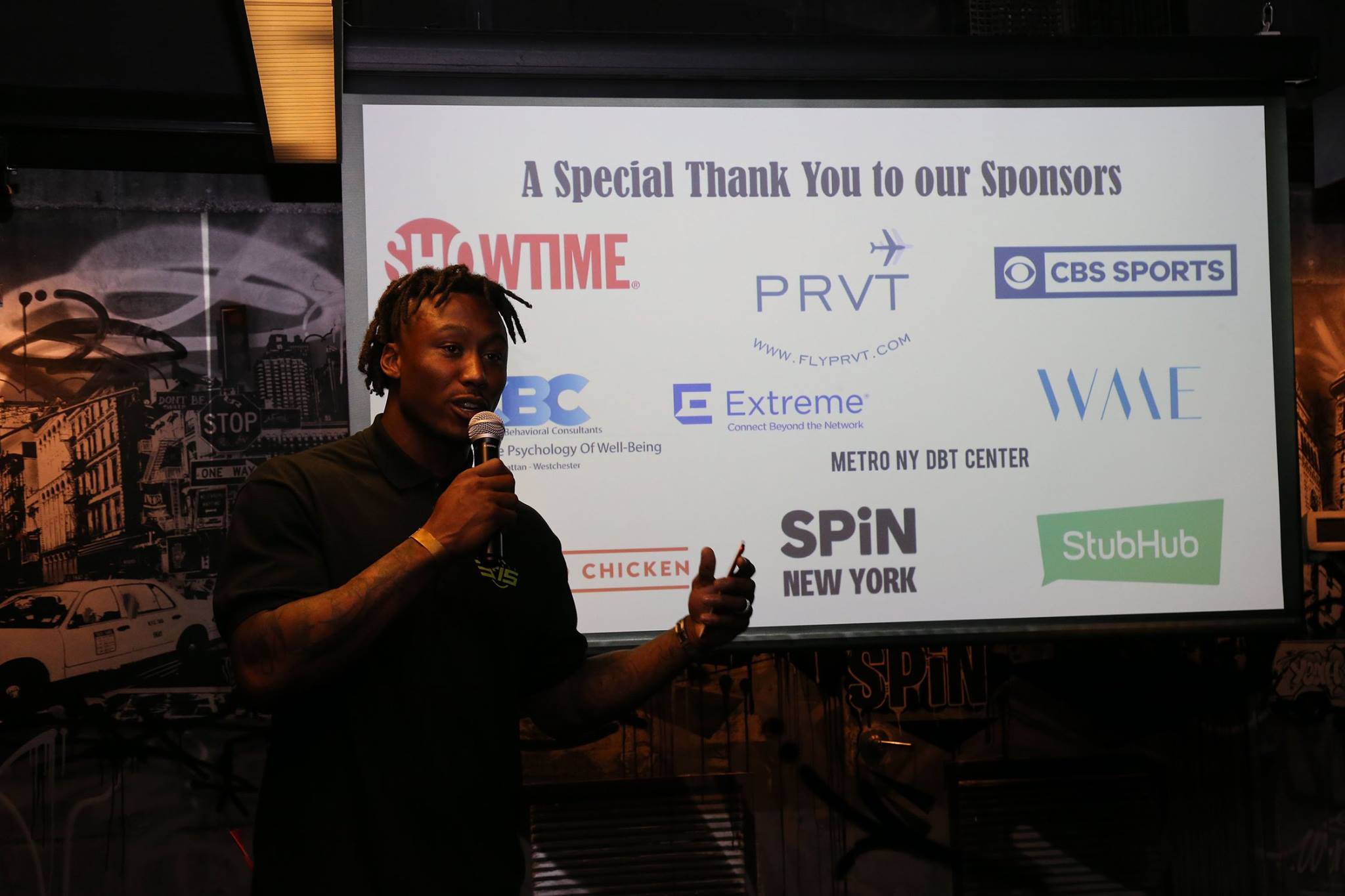
Before the glamorous of today House of Athletes, Marshall was patiently nurturing since 2011. Similar to 2020, 2011 was also a year of NBA lockout, as he started buying equipment and working out at home, he saw a lot of the athletes are also finding a way to continue to move forward and continuing to take care of themselves. Ended up building a friendly gym in his house after a month he has got Chad Ochocinco, Darcy Johnson and other players training alongside.
“And we’re talking about 300 square feet with one big treadmill and a rack. In that moment, my trainer and I decided to open up a facility. Long story short, we started this facility and we only train athletes from ages seven up until the professional level,” Marshall told the USAToday.
The more embarking on this journey, the more he realized the need to open this up for the general population, as there is a huge demonstration of people that actually enjoy working out and training. To him the general needed more than ever, without proper training and knowledge they would be going through life in pain. So, that is what his House is for, with 13-years-experience playing in the NFL, he wanted to infuse all the approach around medicine, nutrition and performance into his business, for new crowd.
According to the founder, there are five thing they consider as their core pillars.
“Train, fuel correctly – and that’s macronutrients and supplementation – be mentally fit, recover, and tribe.” Barely any one has ever made it to the top by themselves, so he believes his mission is to work on those five values and educate athletes on.
In brief, he wants to make a new lifestyle out of it, make the professional routine available for everyday athlete even professional or regular.
Differentiator – Why Is This Not a Gym?
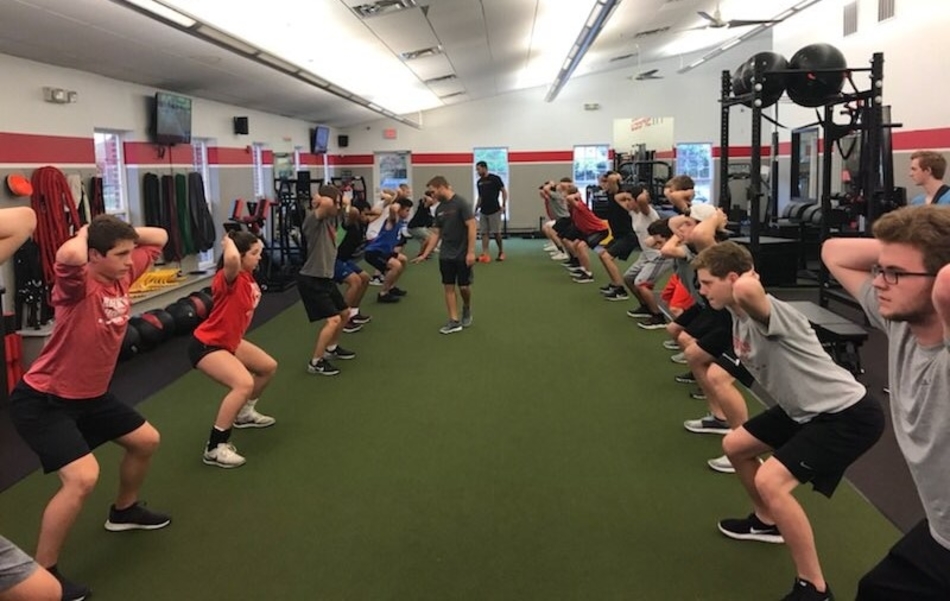
Make a big leap from its presence since 2019, earlier 2019, Marshall launched his House of Athlete rebrand to announce this is no longer a sport camp.
He hired mental health practitioners, massage therapists and yoga instructors to go with his staff of personal trainers to serve the general population at the 20,000-square-foot facility. On the surface, Marshall is building an empire.
So, how is it different from others?
This is a 3-pronged model, encompass fitness, training facilities, supplements and apparel, it focuses on wellness from physical to mental – which is the same way the founder says any professional sports team does. And the mental part is the strategic one!
How other neglects the important of mental health in sport, Marshall wants to stress it, and make it his business highlight.
“Eighty percent of sport is mental. So why don’t we work more on that side? They don’t. They neglect it,” Marshall said. “So that’s what House of Athlete is, and as a huge differentiator.” You can sign up and book a strength class, you can book a conditioning class, you could book a yoga class, you could book a cool class in our altitude chamber room, and you can book a self-assessment, which is a group of people sitting in the stadium seating and checking in on life together. Community. That’s one of the most impactful things he wants to happen here.
How Is This a Trendy Industry?
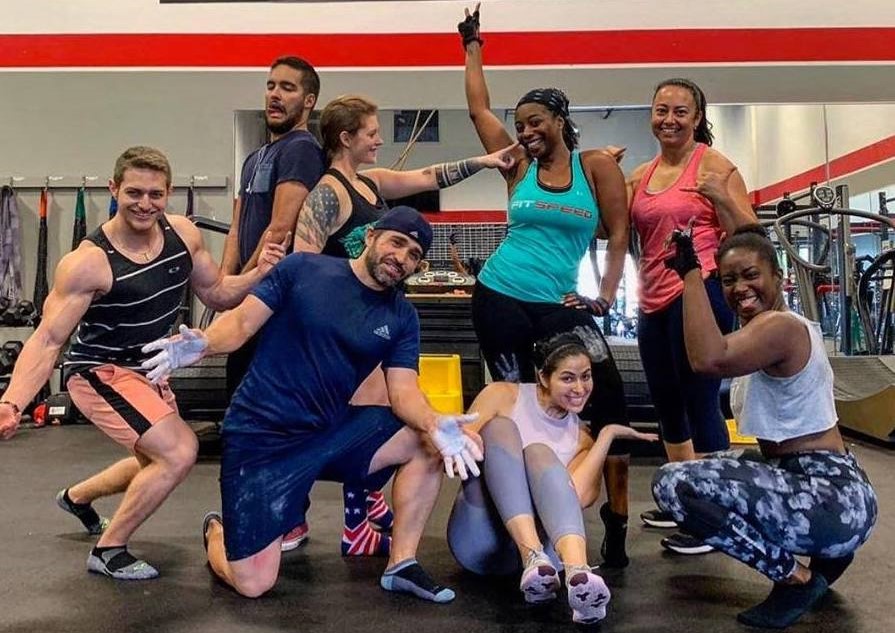
As Marshall and his wife Michi have bootstrapped this entire company, he says, the approach will eventually create a trio of independent revenue streams, but right now it means three businesses to bootstrap during a particularly tricky year for the $4.5trillion health and wellness industry.
But the founder remains confident for how his House has the “all-encompassing” nature that he thinks the pandemic has made even more of a priority for people around the world.
The industry updated, with Nutrition Business Journal reported 3.4% growth for sports nutrition supplements in 2019, and the global dietary supplements market was expected to grow $9 billion year-over-year to $132.3 billion in 2020—and that forecast was in February, before COVID-19 cases began piling up in the Western world. Rising health concerns and changing lifestyle and dietary habits are driving increased product demand, according to the report by Grand View Research
“This industry is trendy,” Marshall told Sportico. As hard as people are trying to scale treadmill and cycling classes, he claims, no one has ever thought of athletic performance at scale. Which has given the ripe niche for he to tackle – provide the general population the lifestyle of the pro athlete, how they train, what they eat, the apparel they wear – group of the healthiest people on the planet.
With the House’s all-into-one concept from medical personnel to massage therapist, besides the general and professional athletes, Marshall also targets future investments from corporate partners and sponsorships as well. Without any names disclosed, the founder says his House is in discuss with a number of peers that have already found their ways into the investment and venture space.
A Channel to Tell Your Story
Years of playing games, Marshall realized how the visibility of working on major media networks would factor in the success of his future ventures.
“Magic Johnson stood out to me, and I was like, ‘Why is this guy doing television and probably losing money? This dude is probably worth almost half a billion dollars. Why is he talking about basketball right now?’ and I realized it was a platform,” Marshall said. “So, that’s when I got into the production work. This House of Athlete thing, this I am Athlete thing was a part of the plan back then. I wanted to start to establish myself while I was playing so I could transition smoother.
The collective reach of a group of professional athletes is impressive, said Marshall, who has half a million followers on Instagram. “That’s why our approach to bringing on potential partners starts with professional athletes, because we understand the power of our platform is how powerful it can be if we come together,” he said.
Marshall points to the success of HOA’s production arm, H3 studios, which produces his I Am Athlete podcast, which is also available in video form on social media platforms including YouTube. The show, entering season two, started seven months ago in advance of HOA’s other business endeavors. “We see this growing as a franchise and introducing other athletes and other personalities in different cities,” Marshall said. “I Am Athlete is a platform to be able to create content to tell our stories and to highlight not just House of Athlete, but everything that we’re doing on the nonprofit side as well.”
While I Am Athlete is “100%” a way to talk about holistic health and wellness and promote HOA, Marshall emphasizes that it’s a “totally organic and authentic” way of doing both—summing up his marketing and business philosophy.
How an NFL Player Learn to Do Business?
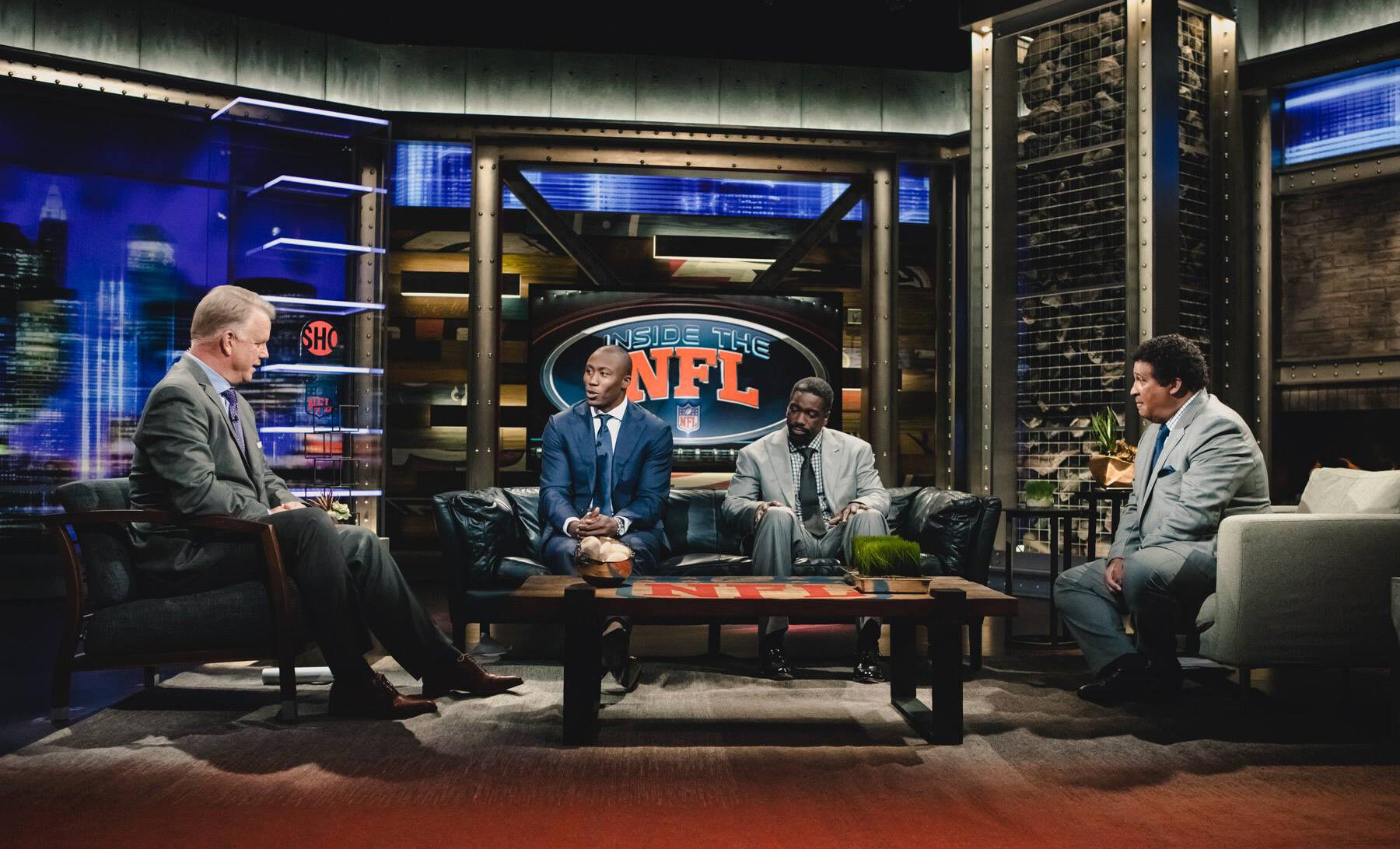
How Marshall did it is another ‘fake it till you make it’ story. Started out he just wanted a place for teammates to gather for practicing, and without his notice it becomes a real business. Told on the USAToday, he did not know the first thing about how to run a business.
But back on the time with tournaments going on, he cannot afford the time to take any classes either, or reading is the only way out. Hunting down the professor’s name, he started with ‘Good to Great’ by Jim Collins – which studied why Fortune 500 companies succeed or fail. And then Delta Sky story on Harvard business professor Anita Elberse and her book ‘Blockbusters: Hit-Making, Risk-Taking, and the Big Business of Entertainment’
That’s how he got familiar of the business side of things. To do business you do not have to be a smart one, he says, you just have to love doing homework, learn things that nobody asks you to, by yourself and make it a hobby. At least that was what Marshall does, a wide receiver at day and in his free time a Harvard business reader who then reach out to professor and asks ‘Hey, next time you’re in Chicago, can we talk?’
Masrshall also shares one important lesson he learned.
“There’s always something you could get better at,” Marshall says, after retired from the game, the entrepreneur has recently taken business courses at Harvard in an effort to learn more. And to get better at anything, you have got to surround yourself with people who are smarter and better at it than you.
To be the dumbest person in the room is the key to success. Before to you get, try to put your head down and work very work until you attract the right people “I am very lucky that, over time, I am able to find people to help build out the ideas that I have — people who are smarter than me to help deliver on the promises,” says the founder.

